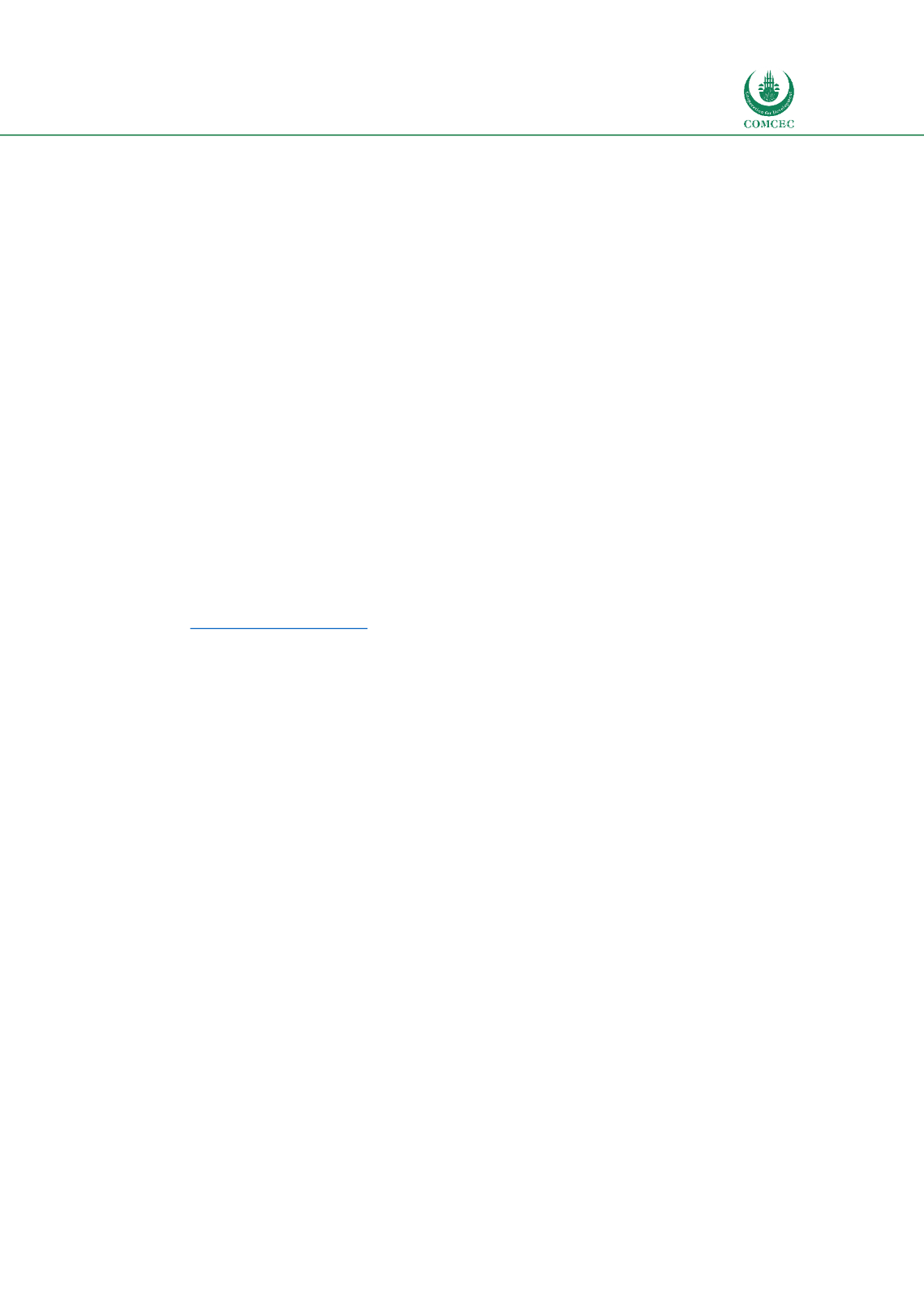

Enhancing Public Availability of Customs Information
In the Islamic Countries
75
but it does not correspond with the recognition the country has received for moving forwards
on trade facilitation, in particular in the area of information availability. The 2017 TFIs show
that Morocco is a strong performer in the four areas identified as relevant to the public
availability of Customs and trade information. Answers to most questions indicate partial or full
implementation of the relevant measures. A review of the data shows that Morocco is
particularly strong in terms of its use of online resources to satisfy requirements relating to
inquiry points, and publication of rules, regulations, procedures, and forms. These issues relate
to the PortNet system, soon to be supplemented by TradeSense, both discussed in more detail
elsewhere in this subsection.
The second major information source used in this report is the UNGS. However, Morocco is not
covered in the 2017 edition of the database. As a result, it is therefore not possible to comment
on the current state of the country in terms of these data, nor the underlying trend in
performance between 2015 and 2017, as has been done for the other case study countries.
Scope of Information Dissemination to the Public
As noted above, Morocco has been subject to two important forces pushing in the direction of
greater transparency in government, including in relation to trade. One is the country’s FTA
policy, where transparency provisions are sometimes inserted in the agreement, as in the case
of the FTA with the USA, and the other is the general shift towards greater transparency post-
2011.
Specifically, the post-2011 period has seen the development of the PortNet virtual Single
Window
( www.portail.portnet.ma ), in Arabic, French, and English. The project in fact had its
genesis earlier in 2008, following port reforms introduced in 2007, but only became fully
operable as a Single Window in 2014. PortNet is a comprehensive resource for the trade
community, providing access to rules and regulations, as well as forms and documents, relevant
to all stages of the international value chain. Historically, all of these documents were published
in paper form, and that still continues, but PortNet brings them together electronically, and
allows for filing and processing in addition to consultation.
The system incorporates electronic document interchange and processing, and also allows for
payment of fees electronically. The objective is to be comprehensive in terms of the services it
offers to the port community. The range of services is constantly being expanded through an
innovative partnership in which PortNet is established as a company under private law, with
stakeholders assuming the role of shareholders. It runs on a fee for service model, with tariffs
set through a consultative process, which ensures that costs are not out of line with services
rendered, and as such do not constitute an undue burden for business. The rationale for creating
PortNet as a private entity is that it provides a commercial and legal mechanism for bringing
together public and private sector agents.
In addition to PortNet, efforts are also underway with the World Bank to develop a Trade
Information Portal, TradeSense. At this stage, it is not clear what additional information will be
provided by the Portal that is not already available through PortNet. But in any case, the
intention is for all relevant information to be publicly available.
In addition to the traditional role of facilitating the flow of information between governments
and businesses, PortNet also facilitates data flows between private actors, i.e. business-to-
















